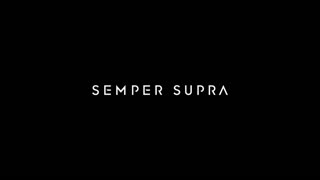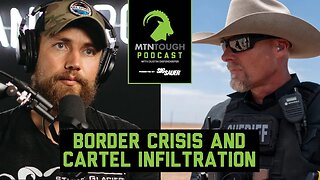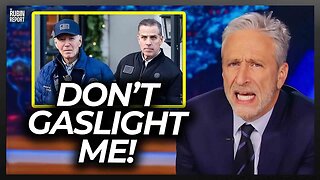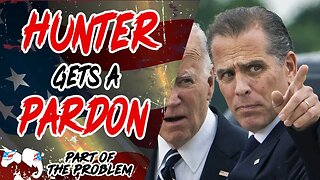Premium Only Content

One Step Closer Bleed It Out When They Come For Me Linkin Park
One Step Closer Album: Hybrid Theory (2000)
Bleed It Out Album: Minutes To Midnight (2007)
When They Come For Me Album: A Thousand Suns (2010)
by Linkin Park
Lead singer Chester Bennington wrote One Step Closer to express the anger he felt growing up. He didn't fit in well and got beat up a lot.
Bennington wanted kids who hate themselves at times to know that he went through the same thing. He did not intend it as an excuse for self-pity or anger.
One Step Closer was Linkin Park's debut single, which allowed the band to hear themselves on the radio for the first time. Guitarist Brad Delson told Kerrang he remembered they were driving through Arizona on their first tour bus and the song came on a local station that Bennington, a Phoenix native, used to listen to as a kid.
One Step Closer was made after the band had frustrations making "Runaway," another song on the album.
Hybrid Theory was the original name of the band. They used it as the name of the album, which was the best-selling album of 2001 in America with nearly 5 million copies sold.
Linkin Park performed One Step Closer on the 2001 MTV Video Music awards with turntable group The X-ecutioners.
A version of One Step Closer featuring Staind lead singer Aaron Lewis appears on the album Family Values Tour 2001.
On their 2002 album Reanimation, this was remixed by The Humble Brothers with vocals by Korn lead singer Jonathan Davis. The title was changed to "1Stp Klosr."
After 15-year-old Charles Andrew Williams killed two people and wounded 13 in a shooting spree at his school in Santee, California, the NBC show Dateline interviewed one of his friends, who claimed that Linkin Park's music inspired Williams to kill. This song was cited as one that encouraged Williams, with the lyrics, "Everything you say takes me one step closer to the edge and I'm about to break."
The vocals to "One Step Closer" were recorded in Mike Shinoda's flat one night while an angry neighbor hammered on the wall. He couldn't hear the actual music, just Chester Bennington screaming into the microphone.
Mike Shinoda in Kerrang! magazine January 26, 2008: "This was written in my apartment. The music came together quickly but the lyrics took a few tries. I wrote 'Shut Up' as a rough example for Chester to scream and we kept that lyric. I remember thinking that was a great calling-card song. It said, 'Hello, we are going to crush you.'"
Chester Bennington recalled to Kerrang! January 29, 2011 how the band were forced to fight for One Step Closer during the recording sessions for Hybrid Theory: "When we were recording it, (producer) Don Gilmore was really drilling me and Mike (Shinoda) about lyrics, and it had gotten to the point where we had rewritten some songs 30 times! I remember walking into the control room, handing Don the lyrics and he grabbed them, passed them in front of his face without even looking, handed them back to me, and told me to do it again. I lost my f---ing mind, thinking, 'This guy's a f---ing maniac!' But that kind of inspired the lyrics - 'I cannot take this anymore/I'm saying everything I've said before/ All these words make no sense,' and the chorus, 'Everything you say to me takes me one step closer to the edge.' - it all came from that frustration. So I guess in the end he inspired me the way he wanted to."
The concept for the music video for One Step Closer was thought up by the band's Joe Hahn. Originally it was going to be a live performance of the song with fans getting carried away. Instead, Linkin Park ended up filming the visual 63 feet underground in an abandoned subway tunnel in Los Angeles. The clip costars a locally famous artist, Tony Acosta, who goes by the moniker "TonyMech."
Delson was so used to the live version of One Step Closer that he forgot what the studio version sounded like and was pleasantly surprised when he revisited it. "I think about this song as being so heavy because it has so much power live," he told Kerrang in 2020. "And what I love about the actual song, the recording on Hybrid Theory, is it's not just heavy. It's electronic, it's super melodic sounding, there's an alternative quality to the vocal performance. It's just a beautiful song, and that riff is certainly, it's probably the riff that I love the most that I've kind of just channeled. And while it's the intro of the song, it really serves as the backbone of that song, that very syncopated riff."
Delson says even well-known professional guitarists have trouble replicated the One Step Closer riff, not because it's technically hard to play but because "it's all feel."
Linkin Park singer Mike Shinoda said in Kerrang! magazine: "I wrote the lyrics to [Bleed It Out] about 100 times. It's always frustrating as a lyricist to come in with a new version that you spent hours on and have the band tell you that it's not there yet. In one case, they listened to my lyrics for 30 seconds and told me to start over again. That was pretty hard. It felt like I was bringing in the lyrics, getting punched in the face and then going back to the drawing board. When it finally came together I said to the band 'I don't think anyone but us could have made a song like this'. It's a f--king bizarre death-party-rap-hoedown!"
In 2020, Shinoda recalled Bleed It Out as the toughest Linkin Park song to create. "That's why I started the lyric with, 'Here we go for the hundredth time,' because I rewrote the verse to that dozens and dozens of times," he explained. "And a lot of those were completely starting from scratch and I just didn't like them and I ended up on that one... because when I started with that it was like embracing the fact that the frustration of making the song was actually informing the content of the song. It took like, months. That was a tough one."
Going into their third studio album, the band wanted to enjoy themselves and, despite Shinoda's difficulties, Bleed It Out fulfilled that goal. The band explained in the album's booklet: "One of the band's goals on this record was to enjoy it. This track is one of the places that it is most evident. With its '80s-inspired guitar and bass, roadhouse blues piano and clapping, Motown-style drums, irreverent death-party rap verses, and punk chorus, this song is a party (albeit a strange one) from beginning to end."
Bleed It Out was the second single from Minutes To Midnight. Shinoda co-produced it with Rick Rubin, a prolific producer who worked with everyone from Beastie Boys to Red Hot Chili Peppers to Johnny Cash to Metallica. Linkin Park's previous albums were helmed by Don Gilmore, who produced albums for alt-rock acts like Good Charlotte and Eve 6. Their run with Rubin continued through A Thousand Suns (2010) and Living Things (2012).
The album was delayed several times in part because Shinoda and Chester Bennington were busy with side projects. Shinoda formed the hip-hop offshoot Fort Minor and issued the singles "Remember The Name" and "Where'd You Go," while Bennington launched the rock supergroup Dead By Sunrise. They were also locked in a financial dispute with their record label that dragged out the release date.
Linkin Park performed Bleed It Out on the May 12, 2007 episode of Saturday Night Live.
Linkin Park DJ Joe Hahn directed the music video for Bleed It Out, which rewinds through a bar brawl to its vomit-fueled starting point. The clip won the prize for Best International Video - Group at Canada's MuchMusic Video Awards in 2008.
"When They Come For Me" is a very hip-hop oriented track, and is one of the few songs on the album that features Mike Shinoda rapping. The track starts with a syncopated drum beat accompanied by very dirty, distorted synth stabs before giving way to Shinoda's rapping, where he references Lauryn Hill's "Lost Ones", Notorious B.I.G.'s "Mo Money Mo Problems", Big Daddy Kane's "Raw", Public Enemy's "My Uzi Weigh A Ton", Jay-Z's "The Blueprint 2: The Gift And The Curse", and Linkin Park's own song from Hybrid Theory, "Points of Authority". The wordless chorus of the song has the band doing gang vocals before Chester Bennington sings the bridge, accompanied by some subtle electronics and a light, melodic guitar line. The gang vocals also do the "hey! hey! hey! hey!" repeated chant throughout the song.
Being the album's most complex rhythmic track, the Pro Tools session for "When They Come For Me", comprised more than one hundred tracks and took more than a year and a half to complete. At one time, the band considered making the track six or seven minutes long.
In 2015, after Mike Shinoda revived Fort Minor, he mentioned "When They Come For Me" as an example of a Linkin Park song that had a lot of Fort Minor elements.
-
 11:56
11:56
Psychological operations
9 days agoThe Mississippi Squirrel Revival Shriners Convention Ray Stevens
1162 -
 1:08:54
1:08:54
MTNTOUGH Fitness Lab
2 hours agoSheriff Mark Lamb Exposes America’s Border Crisis and Cartel Infiltration | MTNT POD#93
45 -
 8:52
8:52
Cooking with Gruel
10 hours agoToasted Brown Butter Cornbread
3291 -
 DVR
DVR
The Rubin Report
1 hour agoJon Stewart Loses His Cool with Democrats for Saying This About Hunter Biden Pardon
6.58K23 -
 LIVE
LIVE
Benny Johnson
1 hour agoLibs BACKSTAB 'Senile' Biden | Trump Tells Trudeau USA Is Going To Make Canada '51st State!’ 🇨🇦
9,147 watching -
 1:13:08
1:13:08
Graham Allen
4 hours agoCOVID Conspiracies TRUE! Jill FORCED Joe To Pardon Hunter! + Trump wants Canada as The 51st State!
93.3K194 -
 LIVE
LIVE
LFA TV
15 hours agoMAKE CANADA AMERICA! | LIVE FROM AMERICA 12.3.24 11am EST
5,230 watching -
 1:09:34
1:09:34
Part Of The Problem
13 hours agoDave Smith | Hunter Gets A Pardon | Part Of The Problem 1199
4.72K6 -
 35:47
35:47
BonginoReport
6 hours agoFlushing Away Taxpayer Dollars: Another Round of Aid to Ukraine (Ep.96) - 12/03/24
90.4K98 -
 2:18:59
2:18:59
Matt Kohrs
13 hours agoDems Spiral After Pardon, New Market Highs & Breaking News || The MK Show
35.9K6